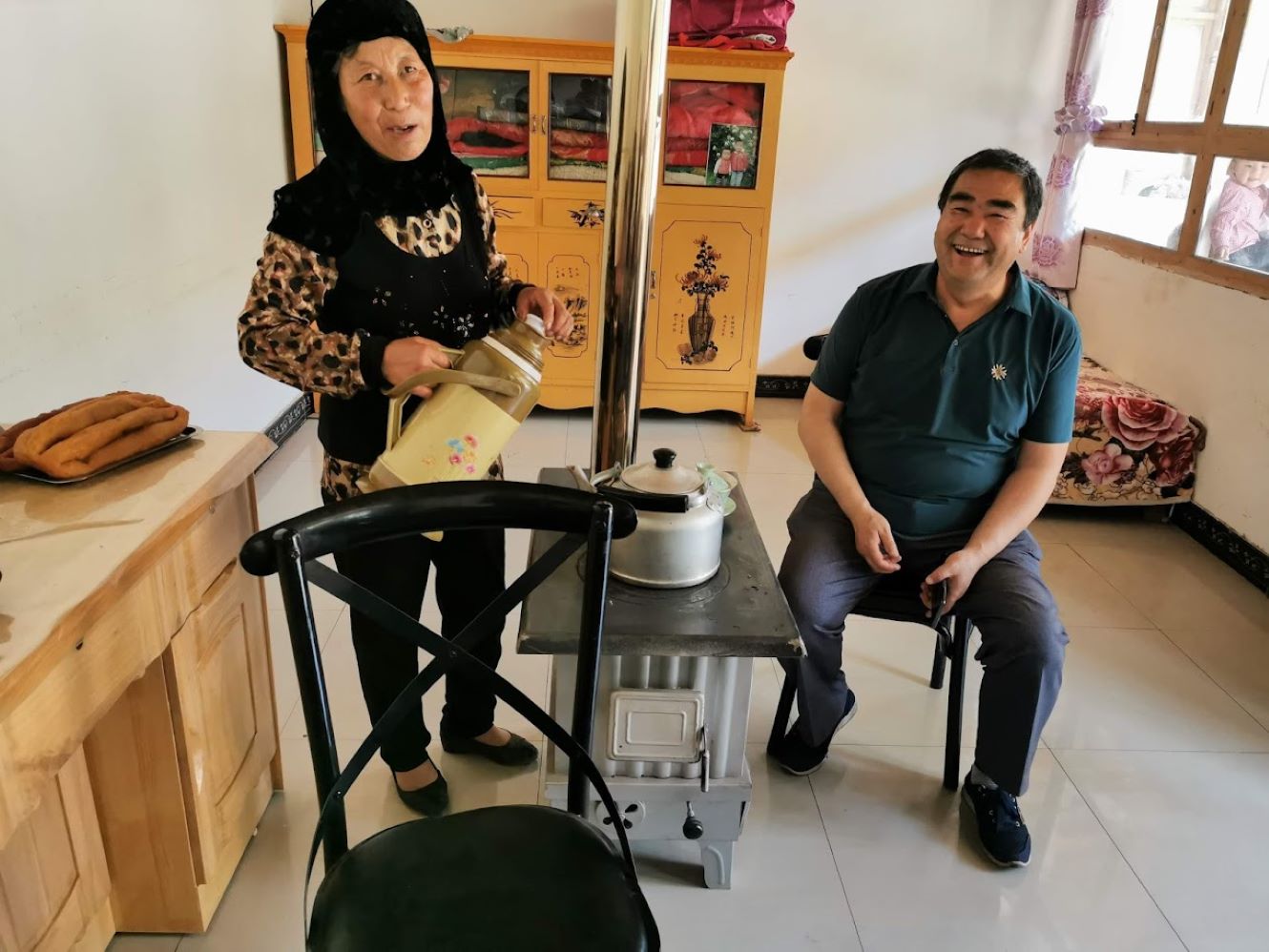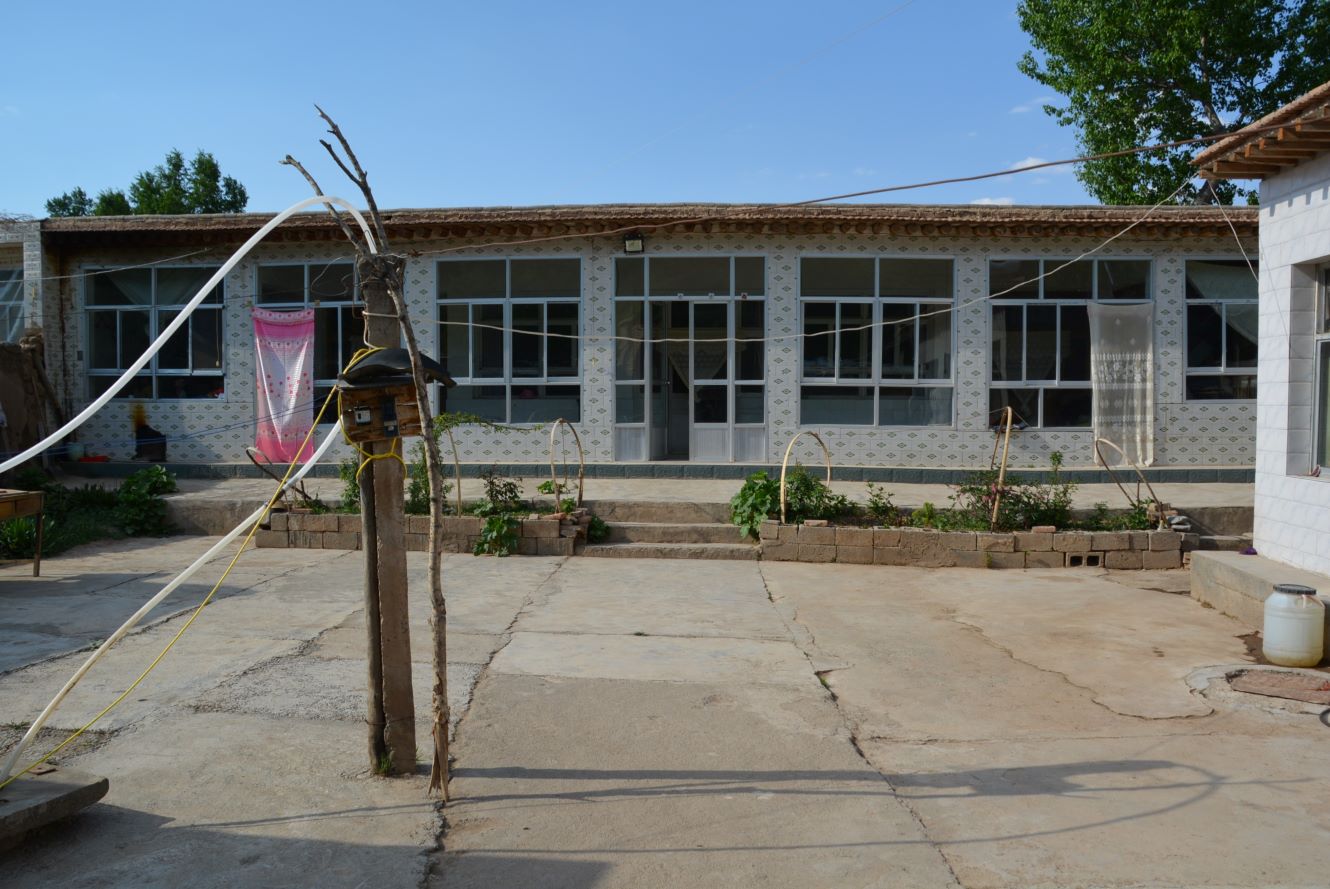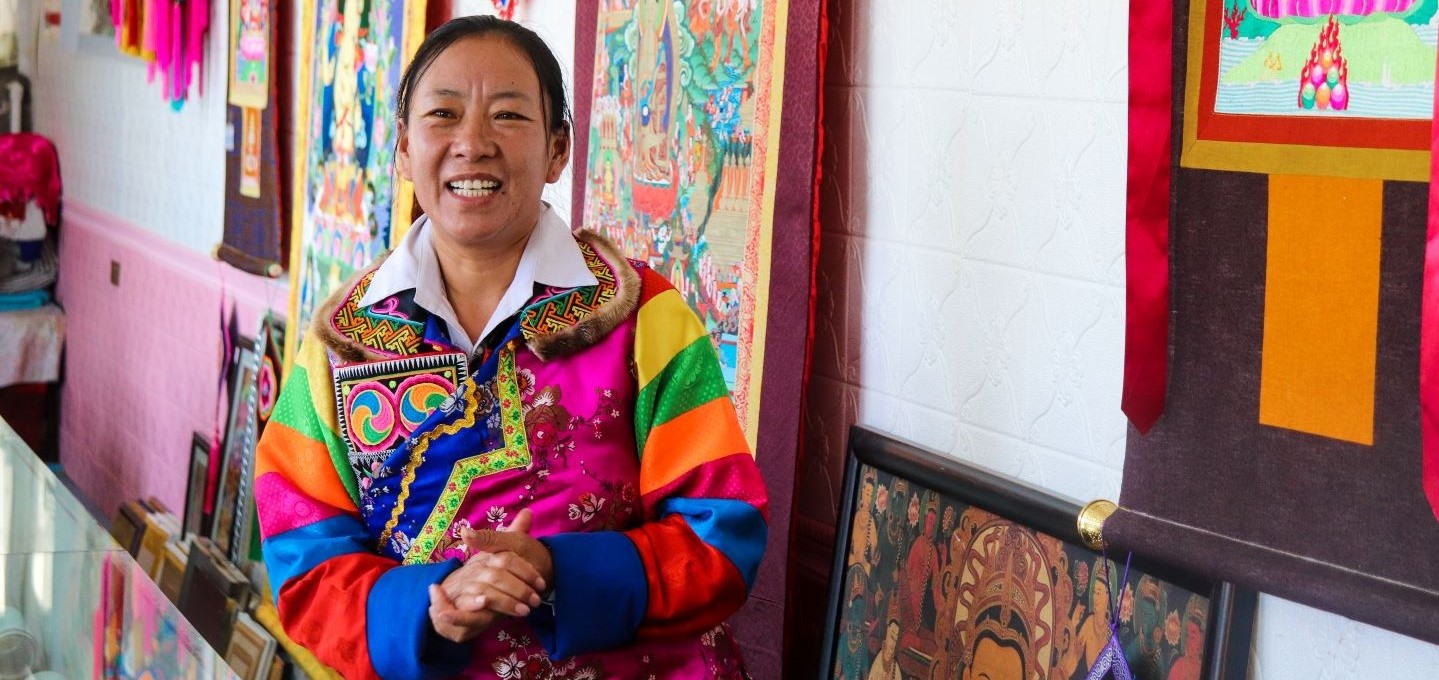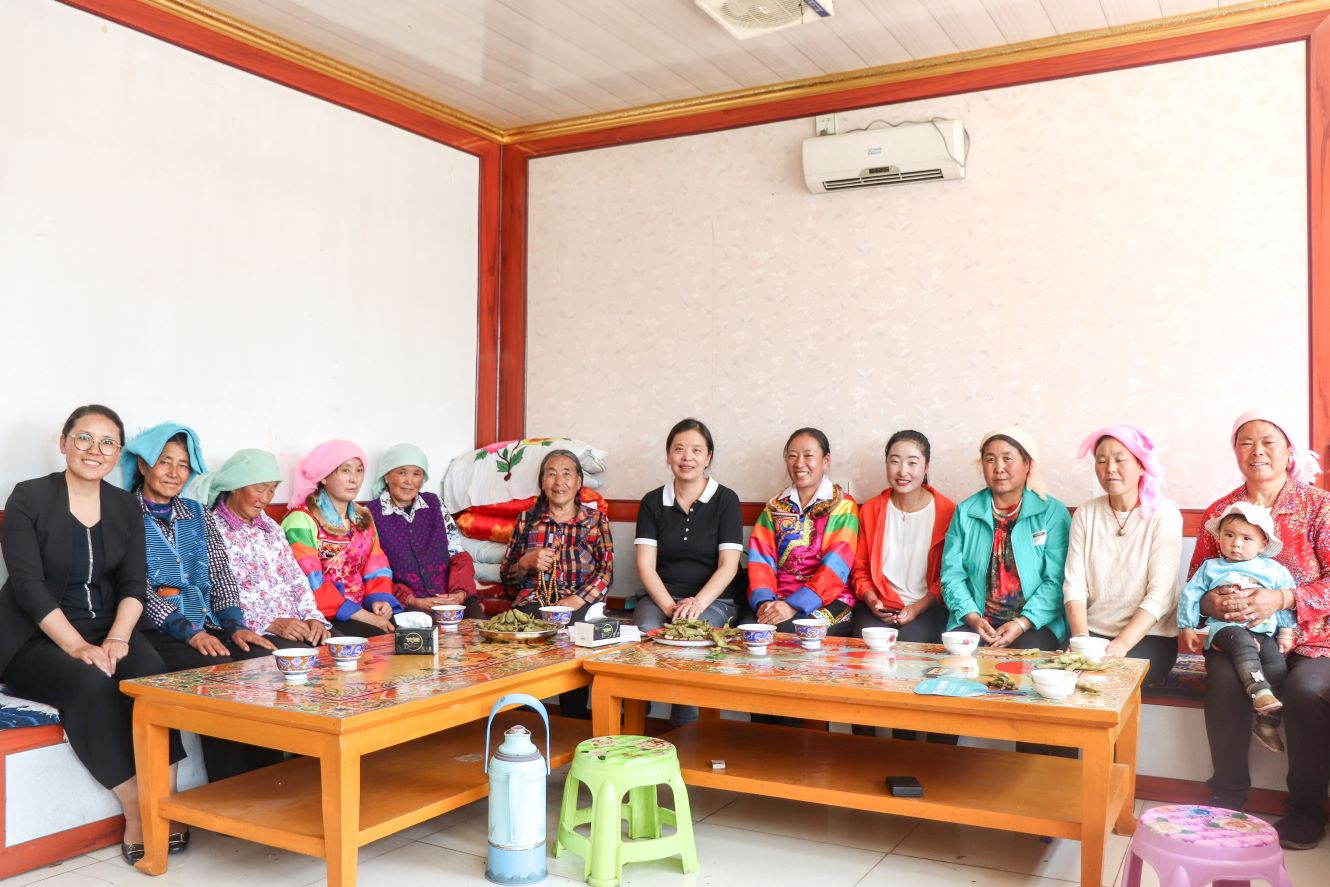IFAD and UN Women join hands for rural women’s empowerment in China
IFAD Asset Request Portlet
Asset Publisher
IFAD and UN Women join hands for rural women’s empowerment in China
Estimated reading time: 4 minutesMadam Maa Zenai stands proudly at the entrance to her brand-new shed. Inside is the small herd of cattle that has changed her life, thanks to a project that employed a ground-breaking partnership between IFAD and UN Women to empower rural women in China.
Madam Maa, who belongs to China’s Hui ethnic minority, lives in the eastern part of Qinghai province, on the vast Tibetan Plateau. There are few opportunities to earn a living in this remote, sparsely populated region. Most men emigrate to cities in search of work, leaving behind women and the elderly to care for homes and farms. Much of the productive land lies abandoned. The winters are intensely cold, rain is scant, and climate change is making farming even harder.
Ever since her son-in-law died many years ago, Madam Maa has cared for and financially supported her granddaughter, Zhang Yuhan, now 14 years old. Until recently, they lived close to China’s national poverty line, each making do with around US$2 a day.
 |
| Madam Maa in her new home, preparing traditional Babao tea for one of the project staff members (right) |
When Madam Maa heard of the QLMAPRP project, an IFAD-supported initiative active in Qinghai, she immediately signed up. Through trainings developed with IFAD’s support, she learned how to keep her cattle healthy and how best to market and sell them. She received high-quality livestock feed and support with building a new shed. And for the first time, she also got the chance to participate in discussions about gender equality.
“While training us how to improve our livestock business, they included discussions about the important role of women in rural societies and about women’s right to fair and equal treatment, such as balanced workloads,” she says. “I do think there has been a big change for women in recent years.”
Today, thanks to the project, Madam Maa earns 30,000–40,000 yuan (about US$4,800–6,300) a year. Her family secured a stable, long-term source of income, and they were even able to build a comfortable new home.
 |
| Madam Maa’s new home |
Delivering as one
The IFAD-supported Qinghai project got its start in 2015, with the aim of sustainably and equitably reducing poverty and improving rural livelihoods in what was then one of the last remaining pockets of extreme poverty in China.
Even though women make up over 80 per cent of the labour force in some rural areas of Qinghai, highly gendered practices in the division of labour were holding women back from earning a fair and reliable income. It was clear that, to sustainably eradicate poverty, something had to be done.
Three years into the project, UN Women suggested a collaboration. By bringing together UN Women’s expertise in gender empowerment and IFAD’s investments in rural people, the two organizations could economically empower women, improve their control of assets, and ensure they had a voice in decision-making. It would also allow them to operate more efficiently, working with the same organizations and reaching women in remote areas through local chapters of the Women’s Federation.
The collaboration with UN Women sharpened the IFAD project’s pre-existing focus on gender equality and successfully enhanced the awareness of gender-centric issues in the project’s implementation. This renewed focus was crucial for helping women like Madam Maa access diversified livelihood opportunities, connect to markets, and adapt to climate change.
Trading connections
Qinghai has always been a place of craftsmanship and trade. The ancient Silk Road passed through Qinghai, and to this day, the province is home to many ethnic minority communities whose arts are greatly valued. But the region’s remoteness makes it difficult to find markets for the products made here.
 |
| Ms Huang Lansusishijie with her thangka embroidery, Wushi village, Huzhu county. © UN Women/Jiayuan Wang |
Ms Huang Lansusishijie, a Tu craftswoman living in Tu Wushi village, creates thangka – intricate embroideries and silk paintings depicting Tibetan Buddhist scenes and deities. They’re time-consuming to produce, but can sell for high prices – if one can find the right buyer.
“When I was young I travelled from one Buddhist temple to another with my artworks on my back,” says Ms Huang. Today, she works with a company set up by the Bureau of Culture, in partnership with the IFAD Qinghai project and the UN Women initiative, that connects craftswomen with buyers. The company also helps women with networking and training.
“Sales and marketing are now taken care of for us, so we craftswomen can concentrate on our craft,” she says.
Partnering for empowerment
The support from the IFAD Qinghai project marked a turning point in the lives of countless women like Maa Zenai and Huang Lansusishijie. By the time the project ended in 2020, 69,000 women in 158 villages had taken part. Of those who received entrepreneurship training, an astonishing 75 per cent had established their own businesses: running farm restaurants, marketing handicrafts, providing housekeeping services, operating small shops. Some activities were also made accessible for people living with disabilities, nearly half of whom subsequently found employment.
For IFAD and UN Women, the project opened new ways to cooperate and fulfil their respective mandates – rural development on one hand, and women’s empowerment on the other.
IFAD has recently embarked upon another project in Hunan province. This one uses gender-transformative approaches in its efforts to address the barriers women face in the eradication of poverty and reduction of inequalities. Ultimately, the project aims to benefit 164,000 women. And, once again, IFAD and UN Women are working together to unleash the potential of rural women to transform their own lives and their communities.
 |
|
Embroidery workers from Tu Wushi village. © UN Women/Jiayuan Wang Learn more about IFAD’s work in China. |